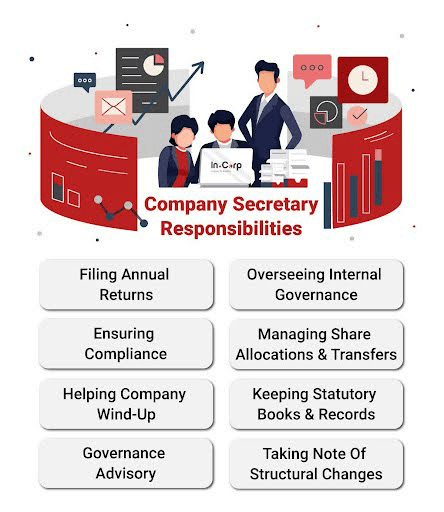
Hong Kong has consistently been ranked as the world’s freest economy for nearly three decades, making it a prime destination for foreign entrepreneurs looking to start a business in Hong Kong. Its status as a bridge between the West and Mainland China enhances its appeal. A straightforward and favourable tax regime also makes starting a business in Hong Kong alluring for startups.
However, the biggest advantage for any foreign company set up in Hong Kong is its flexibility – setting up and operating a successful business without residing in or even visiting Hong Kong is possible. This unique aspect continues to attract international business owners seeking to capitalise on the region’s economic freedoms, leveraging Hong Kong company incorporation.
Selecting a registered Hong Kong incorporation service provider is essential before embarking on your journey to incorporate a company in Hong Kong. Although the Hong Kong Government has streamlined the process, certain aspects can be complex, where expert guidance is beneficial.
The following serves as a checklist to remotely set up your business in Hong Kong without ever setting foot in the region.
Understanding the Local Regulatory Landscape
The first step in your entrepreneurial journey involves familiarising yourself with key Hong Kong government departments:
The Companies Registry: This agency is responsible for all Hong Kong company registration and regulation matters, ensuring compliance with corporate laws.
The Inland Revenue Department (IRD): The IRD oversees tax administration and requires annual company tax returns to ascertain your company’s tax obligations. To better understand these obligations and how to take advantage of Hong Kong’s tax benefits, refer to our guide.
Selecting Your Company Name
Starting a business in Hong Kong starts with selecting a suitable name, available in Chinese, English, or both, adhering to specific linguistic and legal guidelines. Ensure the name is not trademarked and consider registering it as a trademark for protection.
Should your business name be in English, it must conclude with “Limited.” In the case of a Chinese name, it must be articulated using traditional characters and terminate with “有限公司.”
It’s important to note that selecting a name deemed unregistrable by the Companies Registry could lead to the rejection of your application, impacting your Hong Kong company registration process.
Choosing the Company’s Legal Structure
Foreign companies looking to establish their presence in Hong Kong have three main business structures: a subsidiary company, a branch office, and a representative office.
Selecting a particular business structure should align with the company’s strategic business objectives and plans.
| Entity Type | Description | Basic Requirements | Legal & Tax Implications |
|---|---|---|---|
| Subsidiary Company | A private limited company in Hong Kong can be 100% foreign-owned. Preferred for its limited liability and tax advantages. Separate legal entity from the parent company, eligible for Mainland China market access and benefits from China’s free trade agreement. | – Approval of company name
– Local registered address – At least one director and one shareholder – Local resident company secretary and an auditor – Share capital (no minimum) |
Treated as a Hong Kong resident company; eligible for tax exemptions and incentives. Liabilities do not extend to the parent company. |
| Branch Office | Operates as an extension of the foreign parent company, not a separate legal entity. The parent company is responsible for debts and liabilities. Must be registered with Hong Kong’s Companies Registry. | – Company name approval
– A local resident authorised representative – Established place of business in Hong Kong |
Subject to the same legal and tax consequences as local companies. Must adhere to compliance and public disclosure requirements. |
| Representative Office | For market exploration without engaging in profit-making activities. Cannot sign contracts or engage in trading. No legal entity status, with the parent company bearing implicit liability for activities. | – Register with the Inland Revenue Department and obtain a Business Registration Certificate | No legal standing or requirement to maintain accounts or file tax returns. Limited to promotion, liaison activities, and market research. |
Also Read: The Different Types of Business Entities in Hong Kong
Deciding on the Best Option
For entities aiming to pursue profit-generating activities in Hong Kong, the choice often boils down to establishing either a subsidiary company or a branch office. Taxation-wise, both entities encounter similar landscapes, adhering to the same tax protocols and rates.
However, branch offices might need to help pinpoint assessable profits, sometimes leading to discrepancies with tax authorities’ evaluations. Additionally, while a branch office’s liabilities are directly linked to its parent company, a subsidiary’s liabilities are confined to the subsidiary itself. This distinction leads many foreign enterprises to favour the subsidiary route for their Hong Kong operations rather than a branch office.
Establishing a representative office emerges as a viable option for those considering a preliminary exploration of the Hong Kong market before committing significant investments. However, it’s crucial to recognise that representative offices are designed to function as cost centres, lacking the capacity to engage in direct profit-making activities.
The following comparative analysis offers a snapshot of key considerations for each business structure, facilitating an informed decision-making process for foreign companies contemplating their entry strategy into the Hong Kong market.
| Branch | Subsidiary | Representative Office | |
|---|---|---|---|
| Legal Entity Status | Yes | Yes | No |
| Do Liabilities Extend to Parent Company? | Yes | No | Yes |
| Company Name Requirements | Must be same as parent company | Can be same or different as parent company | Must be the same as parent company |
| Permitted Activities | Must be same as parent company | Can be same or different as parent company | Only non-profit activities such as promotion and research |
| Registration Timeline | 14 Working Days | 5-7 Working Days | 1-2 Working Days |
| Taxation as a Local Entity | Yes | Yes | Not applicable |
| Annual Returns Filing Requirement | Yes | Yes | Not applicable |
| Profits Tax Return Filing Requirement | Yes | Yes | Not applicable |
| Audited Accounts Requirement | No (subject to conditions) | Yes | Not applicable |
| Ability to Open a Hong Kong Bank Account | Yes | Yes | Yes |
| Appointment of Officers | 1 authorised representative (a Hong Kong resident) | 1 company secretary (a Hong Kong resident), 1 director, 1 shareholder | 1 manager or chief representative from parent company |
Appointing a Company Secretary in Hong Kong
Hong Kong mandates the appointment of a local company secretary, a vital role in ensuring regulatory compliance and operational transparency.

Also Read: What Is A Company Secretary in Hong Kong & Why You Need One
Selecting the Registered Address
The registered address is crucial for receiving governmental correspondence. Using the company secretary’s address is common practice, ensuring the receipt of all official communications.
Preparing & Submitting the Incorporation Documents
As part of the standard Hong Kong company registration process, the following documents are necessary:
- NNC1 and IRBR1 Forms, applicable to companies limited by shares, which need to be completed and signed by a shareholder.
- Identification documents for directors and shareholders, which include Hong Kong ID cards for residents and passports for non-residents.
- A document of the company’s Articles of Association, detailing internal governance protocols like the appointment of directors, the transfer of shares, and the oversight of financial operations, usually furnished by the company secretary in Hong Kong.
The documents above must be submitted to the Companies Registry via online portal or in person. A fee will be incurred, with specific amounts outlined for online and hard copy applications. Details on incorporation and business registration fees are available on the Companies Registry’s website.
Acquiring Necessary Permits and Licenses
While many businesses do not require permits, certain industries do. Necessary licenses may include restaurant licenses, liquor licenses, and import/export licenses, contingent upon the business type.
For example, when establishing a restaurant, it’s essential to secure a General Restaurant Licence, a Provisional General Restaurant Licence, and a Liquor Licence, all of which are issued by the Food and Environmental Hygiene Department.
Please consult the Trade and Industry Department’s website to determine the specific licenses, permits, certificates, and approvals your business may require.
Setting Up a Corporate Bank Account in Hong Kong
Establishing a corporate bank account in Hong Kong mirrors the process seen in other countries, with a few adjustments. Ensure your company is operational and showcases a profitable business model to affirm the credibility, reliability, and soundness of your investment to the bank.
It’s crucial to present comprehensive evidence supporting your company’s potential, including financial statistics, online presence, and forecasted earnings.
Additionally, essential documents such as proof of business activity, registration certificates, and a filled-out corporate account application form for your selected bank are required.
A key consideration for overseas entrepreneurs is that traditional banks in Hong Kong generally require a physical visit to set up banking services. This highlights the importance of partnering with a reputable company incorporation specialist who can help navigate this requirement.
A reliable incorporation service provider can greatly simplify your banking setup by leveraging their relationships with leading banks. Alternatively, it’s worth considering digital or virtual banks as an alternative, which does not require a physical visit and allows the entire application process to be conducted online.
Where To Next?
Hong Kong is renowned as a global business hub, known for its strategic position, strong legal framework, and business-friendly environment, solidifying its role as the “Gateway to Asia.”
Compared to other countries, incorporating a company in Hong Kong is a relatively quick and simple. However, choosing a trusted company registration service provider in Hong Kong is fundamental to your success.
At InCorp Hong Kong, our team is equipped to handle the complexities of setting up and expanding your business in this vibrant city. We provide detailed guidance to ensure a smooth and successful business operation.
FAQs About Setting Up a Foreign Company in Hong Kong
- Hong Kong stands out as a global hub for international trade and investment. Its dynamic business climate, competitive corporate tax rates, and efficient company registration process make it an excellent choice for setting up your business.
- There is no fee for foreigners to incorporate a company in Hong Kong.
- Hong Kong offers numerous tax benefits, including a low corporate tax rate of 16.5%, no VAT or taxes on dividends, and favourable tax provisions for profits up to HKD 2 million.
- Typically, it takes about 5-7 days for a foreigner to incorporate a company in Hong Kong successfully.



